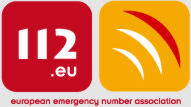Ensuring better emergency services throughout the EU is the next big challenge
Having an accident in Spain or in Italy during the holidays may prove a very bad experience. Having the accident and not knowing which number to call may turn this experience into a nightmare. Calling the 112, the single European emergency call number, and not being understood because the operator does not speak your language, may be fatal.
The 112 was established in 1991 in the context of the universal service proposed to citizens as a counterbalance to the Single Market. In 2002 the Universal Service Directive consolidated the legal aspects in this field. And all Member States have since reported to the Commission that the 112 has been implemented. However, some well informed citizens mention that very little has been done in this major issue, and sometimes too late. Of course some countries like Sweden, Finland, Denmark, Spain, The Netherlands, Portugal and others have even abolished their old national emergency numbers and adopted the 112 as their national emergency number. Others, like the UK and some regions of France, have implemented intelligent systems with on-duty interpreters to serve people who do not speak the national language. Still others have implemented the caller localization even for calls from mobiles – a technology that can save some 5.000 lives all over Europe when fully implemented.
But globally, the 112 service cannot yet be considered an EU success story. Out of 3 European citizens, only 1 knows about the existence of the number, while in some countries this percentage is even less. Localization is globally not implemented; as many call centers need to be modernized in order to be able to use location data transmitted by telephone operators. And no common quality criteria have ever been established, less enforced, concerning the fact that calls to the single European emergency call number "112" have to be «appropriately answered and handled» as provided for in the legislation in force.
The European Emergency Number Association has been striving to improve the quality of the services associated with the 112. Through conferences, debates, petitions, complaints, letters and other actions, the EENA has already put the 112 on the political agenda of the European Parliament. The European Commission has followed up some of the EENA’s complaints by opening infringement proceedings against several Member States for not implementing the EU legislation correctly. The EENA is actually collecting signatures from citizens in order to ask the EU to go a step further and offer a high quality 112 service to its citizens.
Taking care of citizens in emergencies on the basis of common EU wide standards should be the next step towards the establishment of a real citizens’ Europe. Launching an initiative to this end would be the best proof that the Europe imagined by the founding fathers 50 years ago can become a reality.
Help EENA make a difference in this field. You or your beloved may need an efficient 112 someday in the future. Act now to ensure that such an efficient number is considered a priority by the EU.
Saturday, 10 February 2007
Serving EU’s citizens in emergencies – the challenge of the 112
Posted by eena112 at 2/10/2007 11:51:00 am
Subscribe to:
Post Comments (Atom)

No comments:
Post a Comment